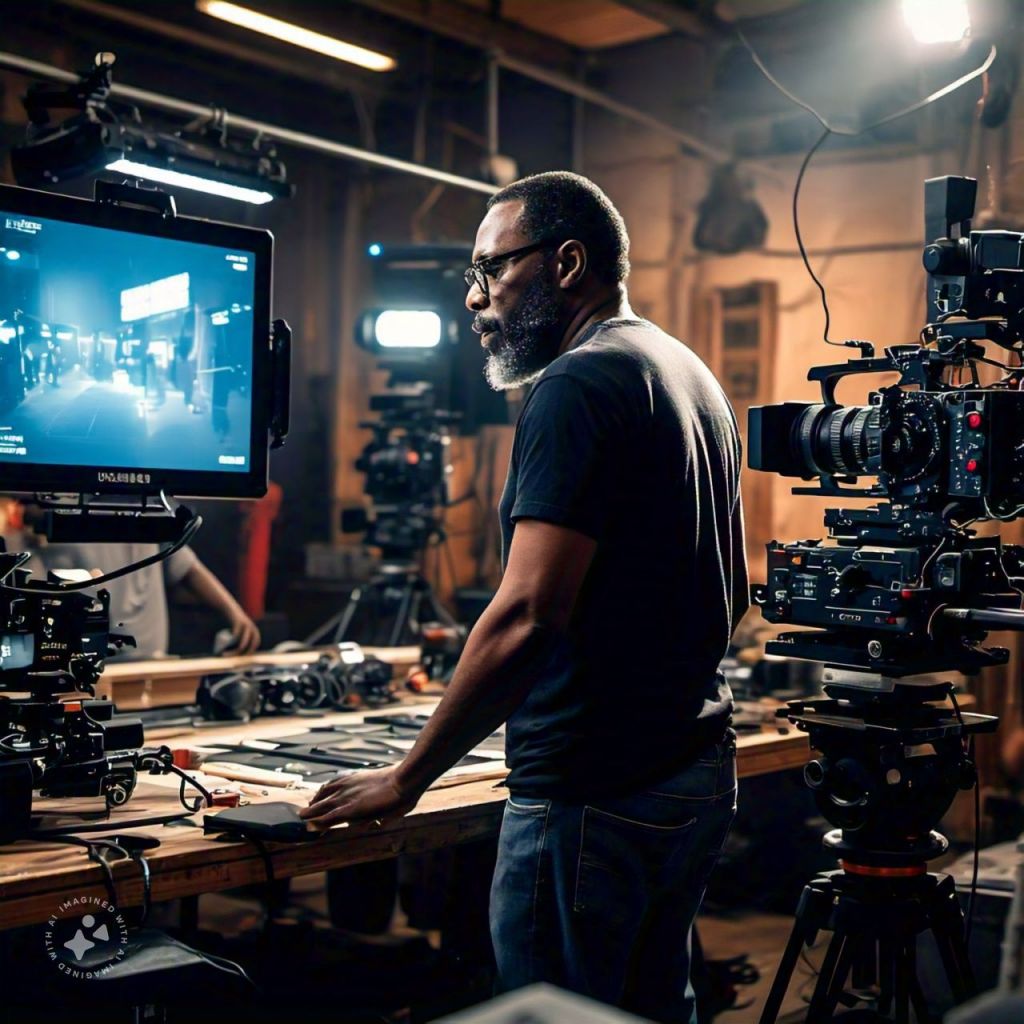
Think of a set designer as the architect of the film’s visual world. They work closely with directors, production designers, and other creative departments to create sets that align with the story’s tone, period, and emotional beats.
Ever walked into a cinema, watched a movie, and felt completely immersed in its world? From the gritty streets of Gangs of Lagos to the eerie backdrops in Seven Doors, those incredible settings didn’t just happen, they were designed. Set designers are the kings of film production, responsible for creating environments that bring stories to life. If you’ve ever been curious about stepping into this creative field, here’s an interactive guide on how to become a set designer in the film industry.
Reading the script to understand the narrative and character dynamics.
Researching periods, locations, and cultural aesthetics.
Creating detailed sketches, models, or computer-aided designs (CAD) of the set.
Collaborating with the director and cinematographer to align the design with the film’s vision.
Overseeing the construction and dressing of the set with props, furniture, and decorations.
Becoming a set designer isn’t just about creativity; it requires a mix of artistic, technical, and interpersonal skills. Here are some essentials:
Artistic Vision
You need a keen eye for detail and a strong sense of aesthetics to create visually compelling sets.
Technical Know-How
Familiarity with design software like SketchUp, AutoCAD, or Adobe Photoshop is a huge plus. You’ll also need to understand spatial planning, lighting, and colour theory.
Problem-Solving Skills
Unexpected challenges like budget constraints or space limitations are common. A good set designer knows how to adapt and find creative solutions.
Collaboration
Films are a team effort. You’ll work with directors, costume designers, and cinematographers, so being a good communicator is key.
Time Management
Deadlines in the film industry are tight. You’ll need to work efficiently without compromising quality.
Steps to Becoming a Set Designer
Understand the Industry
Before diving in, familiarize yourself with the role of set designers in the broader film production process. Watch behind-the-scenes documentaries, read interviews with industry professionals, and study the works of great production designers like Ken Adam (James Bond) or Hannah Beachler (Black Panther).
Study Design or Related Fields
While formal education isn’t always necessary, having a degree in fields like architecture, interior design, fine arts, or theatre design can give you a solid foundation. These programs teach you the principles of design, drafting, and construction, which are invaluable in set design.
Build Your Skill Set
Learn to read and create blueprints. Practice creating 3D models, either physically or using software. Experiment with building miniatures or mock-ups to understand how to translate ideas into tangible sets.
Gain Experience
Experience is everything in the film industry. Start small. Volunteer or intern with local theatre productions. Work on student films or indie projects to build your portfolio. Join a production crew to learn about set construction and design firsthand.
Create a Portfolio
Your portfolio is your calling card. Include sketches, 3D renders, photographs of completed sets, and any work that showcases your versatility. A strong portfolio can open doors to bigger projects.
Network Like a Pro
Attend film festivals, workshops, and industry events to connect with directors, producers, and other creatives. Platforms like LinkedIn and Instagram can also be great for showcasing your work and reaching out to potential collaborators.